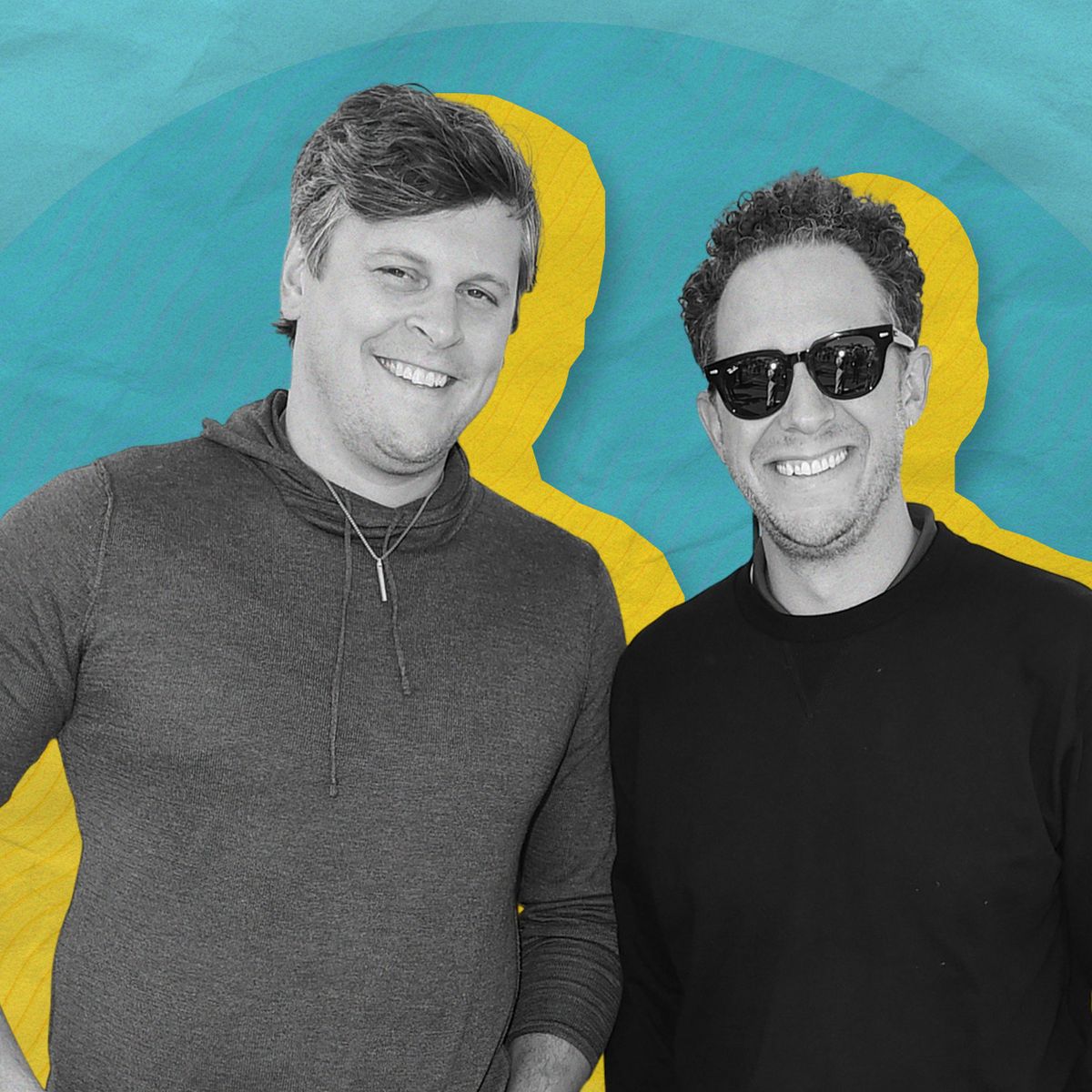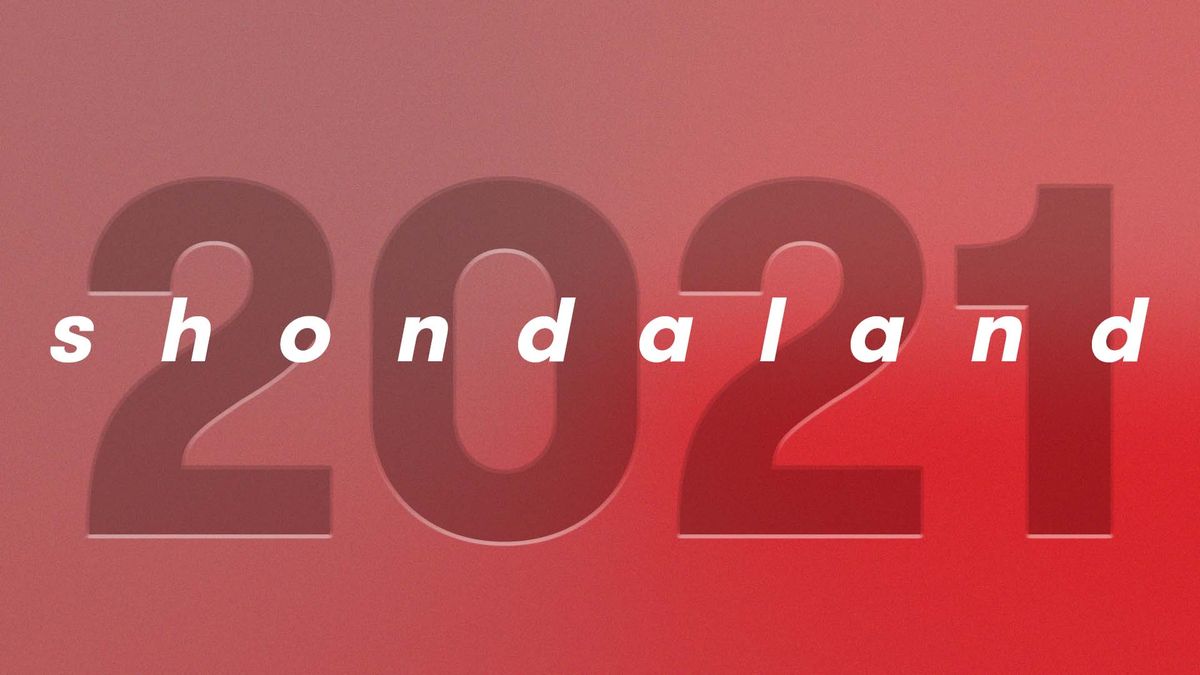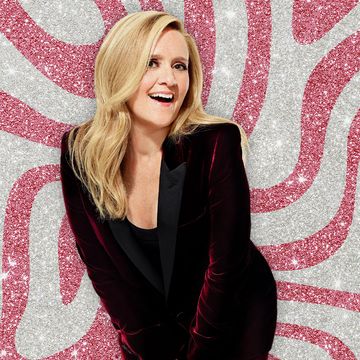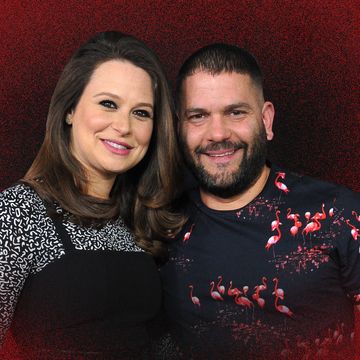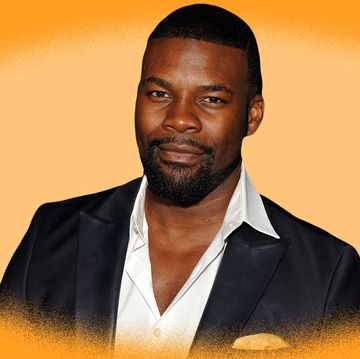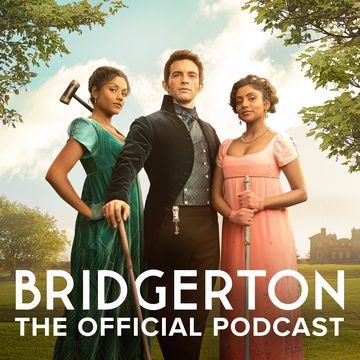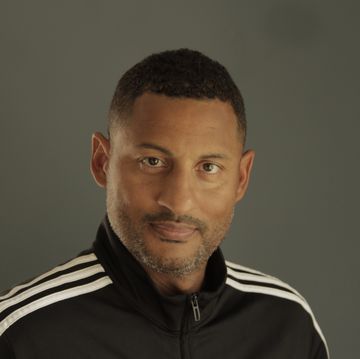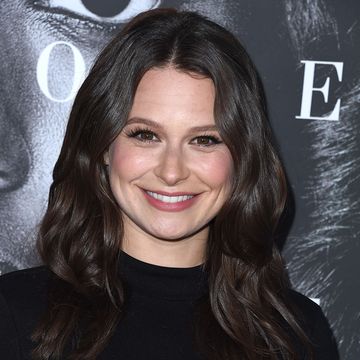Think about the dads you saw portrayed in the media in the 1980s. Heck, go back further, and think of the ones on TV in the 1950s. As Evan Berger, one half of the comedy duo the Dumb Dads, says, that dad is the guy who not only does not try very hard, but he also gets it all wrong, and then it all lands on the shoulders of the mom anyway.
“It started as an inside joke that we used to make with each other, which is like, ‘Do you want to see my impression of a dad on television?’” says Berger. “And then you just make a bunch of fart noises. But the ‘dumb’ also comes from all the effort we put into parenting and how, still, you make stupid mistakes. We always lean on self-deprecating humor. And on the podcast, we always say that the ‘dumb’ is silent.”
Evan Berger and Kevin Laferriere are the opposite of the tired dad tropes that have been swirling in the ether since, well, forever. They’re engaged, they’re thoughtful, they do the heavy lifting in the domestic sphere, and they’re happy to talk about it with anyone who wants to listen. While they began as stay-at-home dads when both of their first children were born about seven years ago, since 2021 they’ve transitioned into working dads who split their time between childcare and producing their TikTok, YouTube, and Instagram content and their weekly podcast, Dumb Dad. And no, they’re not dadfluencers.
“We wouldn’t consider ourselves influencers as much as creators,” says Berger. “An influencer is like, ‘This is my life, this is how I operate my life, here’s my kids, here’s everything about me.’ And we don’t do almost any of that. We present sketches, and we understand the gravity of putting yourself out there too much. We have a pretty measured approach, and we are never going to show our kids; we’re not gonna dunk on our kids for any of their shortcomings, because they’re growing up and it’s not their fault. So, yeah, we put most of our stuff through a pretty curated filter before we post anything.”
This week, the pair were guests on Katie Lowes’ parenting podcast, Katie’s Crib (be sure to subscribe and listen at Apple, iHeart, or wherever you get your favorite podcasts!), and talked about their origins, some parenting pitfalls, and some parenting joys, and as usual, Lowes brought it home with her hilarious and insightful questioning. But we thought it would be fun here to ask a few questions about the impending holiday — Father’s Day — and have Berger and Laferriere tell us what it’s like to navigate the world of parenting as fathers when fatherhood has historically been relegated to playing catch with the son on Saturdays.
VALENTINA VALENTINI: What do you think has been the most surprising thing about being a stay-at-home dad?
KEVIN LAFERRIERE: One of the most surprising things for me about being a stay-at-home dad is the level of emotions that you go through. In those first couple months when my wife would leave for work at like 8:30 and get home at 7, sometimes later, it was just monotony, just through the motions of changing the diaper, feeding the kid, burping the kid, changing the kid, putting the kid down for a nap — that monotony would put you through a roller coaster of emotions. We joke around with people, saying those early months are easy because it’s the same thing, but it’s also a lot on you. And I remember my mom once told me — and it was surprising — she was like, “Just know that there’s nothing wrong with putting the baby down and walking away if you have to.” And I thought it was such a weird thing to say, but then cut to two months later, and I was so frustrated because I couldn’t get my few-month-old daughter to stop crying. So, I just put her down, left the room, and went to freak out in the bedroom. And it reset me.
EVAN BERGER: Before we started any of the Dumb Dads stuff, we had already decided to become stay-at-home parents. My oldest is 8 and a half now, so I have stayed at home ever since. And Kevin did the same thing, and his oldest just turned 7. What’s funny about it is I probably wasn’t quite prepared for the — what’s the right word to use? — maybe like the shock of people outside of the home who would make a comment on a father being with their child. Pre-pandemic, we used to go to read-alongs at the library, and there’d be a room full of 50 moms and maybe some female nannies and grandmas, and then there’d be me and one other dad. And it was kind of weird that we were the only ones there. So, I wasn’t really prepared for all of that, and also the grocery store comments, where people are just so surprised that Dad is out with the kid. But what’s funny about that is that the pandemic made everyone stay-at-home parents. So, you see a lot more stay-at-home dads nowadays, and there’s this much more involved dad movement that’s happened after the pandemic. Dads being primary caregivers is certainly not as normalized as it should be, but it’s more normalized than it was even just three years ago.
VV: Has either of you taken anything you saw from your parents and thought, “Yeah, I’m definitely not going to do that”?
EB: We both had pretty wonderful childhoods, very supportive parents who always encouraged us if we were into something. And I take that with me — whatever my kids’ interests are or whoever they want to be or decide to be, the only thing we can really do is support them as parents.
VV: I feel like someone telling me they had a perfectly lovely childhood is such an anomaly.
KL: Yeah, well, he’s still gotta unpack some stuff. What he’s saying is he hasn’t done therapy! [Laughs.]
EB: That’s not true! I have.
KL: Yeah, but you quit.
EB: Yeah, I guess I was like, “It was pretty good!” [Laughs.]
KL: I grew up in an Irish Catholic household a half-hour north of Boston. And with that upbringing, there was that level of the classic “We don’t talk about it” kind of stuff that certainly happened a little bit in my house. So, I think I’m trying to communicate with my kids more, find out why they’re feeling the way that they’re feeling. And I don’t know that that’s just the Irish Catholic so much as [it’s] just the generation of parents that brought us up. It was like, “Does that upset you? Tough? Life’s not fair.” I’ve never said to my kid, “Because I said so,” as a full explanation. I want more communication, and I try to understand their feelings and try to make sure that they understand my feelings and where I’m coming from.
I think that is the other side of the coin, to try and communicate with our kids not just how they’re feeling, but also how we’re feeling, how their actions are making us feel, and then letting them know at the end of the day, we’re still the parents, and we still are going to be the ones who are going to make decisions that are best for them, and they might not like that, and that is okay; they can voice that. But I’d say that’s probably the biggest thing is just more communication amongst each other as a family. At the end of the day, they’re little humans who deserve to be heard.
VV: What is challenging about being a dad these days?
KL: The internet is terrifying. I was talking to my daughter about this the other day. She was casually asking, “Why can’t I go on TikTok?” And we’re like, “It’s not a great app. It’s terrible. Children shouldn’t be on it. We are not going to put you on it.” And she comes back with that “Well, so-and-so’s mom lets them.” And we’re starting to get that thing.
EB: I’m like, “Well, I guess they’re cooler than I am!”
VV: Do they not use the comeback that you guys are on TikTok?
KL: Luckily, I just say it’s for work [laughs]. But this is definitely the biggest challenge that I see on the horizon. And it hasn’t been a problem yet, but when I hear all these stories, and hearing about a high school kid whose friend posted this horrible thing online, and the whole school is passing it around — horrible situations like that have us debating, and my wife and I don’t know the answer yet — but we’re debating whether to ever let them on social media until they’re 18. We have discussed that with people we know who’ve done that for their kids. And then I’ve pulled those kids aside and asked how much has it sucked not being on Instagram or TikTok or Snapchat, and usually they say it’s fine, that maybe they’ve missed some stuff, but their friends catch them up on it. Obviously, that’s just one case. And it will be a fight if we decide to go that route. But I just think the internet is such a dangerous place, specifically for children because there are faceless monsters on there.
EB: It’s probably the biggest fear, honestly, for what looms in the future for us. Our kids have no way of compartmentalizing what it means to be yourself or be different online, or people trolling you. It’s scary.
VV: How do you think fatherhood has changed since you’ve become fathers?
EB: Probably the biggest one has to be open communication with your kids; transparency with your kids has changed quite a bit. Part of it is the pandemic changed people’s perspective on life in a major way, and I think when, for however an amount of time it was, those that stayed at home with their kids and it was lockdown and you couldn’t go anywhere, the way to get through that was aligning with your kids and your family to make the best of the situation. And then everyone got online and talked about it and how it affected them as parents, and it’s just been a huge change in parenting in general, but even more so with dads. Because even one generation removed, most dads would tell a kid to go talk to their mother if they were feeling bad or something. That was the stereotype for hundreds of years, so it’s been a massive shift, I think, in fatherhood in only the last decade.
KL: You notice most of it when you are online as much as we are watching parenting content. We see what the reactions are, what moms are saying, what dads are saying. This is more hope than what I think is happening, but I hope that the “traditional” or “old school” dad-slash-toxic masculinity is in its death throes. There are still a lot of men online who are still saying really toxic things about being dads and being men — just the other day, I saw one about a guy saying you do not cry in front of your family; you are a man, are a protector. Like, there’s a lot to unpack there …
EB: I dare that guy to watch a Pixar movie and tell me he’s not gonna cry. I dare you! Like, are you a robot?!
KL: So true. But yeah, I hope it’s changing. I see more men coming forward and being honest about their feelings, being honest about being overwhelmed. I think that was the biggest thing of parenting in the past, that you don’t talk about it, you just figure it out on your own, it’s your family, it’s your job as a “man” to support your family and figure it out. That’s why a lot of them didn’t talk to each other because they didn’t know what to say. And now we’re saying something, and I think that is a good thing.
VV: Father’s Day is just around the corner. What are you two looking forward to on that special day?
KL: My mom and dad are coming from Boston, so, as I’ve said, my dad is pretty classic Irish Catholic Boston, so we’re going to probably grill something, and we’re going to probably go golfing. That is what’s gonna happen [laughs]. My daughter is really artistically creative lately, so she makes a lot of very cool drawings and thoughtful cards and writes a lot of cool stuff, so I’ll be interested to see what she does this year.
VV: So, you’re not really into gifts?
KL: No. Even before we had kids, my wife and I, instead of guessing and getting each other a nice gift, which we still do occasionally, but we love to go on vacations. We just went to Solvang, California, and that was kind of a Mother’s Day and Father’s Day gift for both of us. We would rather go have an experience.
EB: It sounds so cheesy, but a lot of the jokes online for Mother’s Day are “You take the kids, and leave me alone — that’s what I want.” But I don’t really go there. I’m at home all the time with the kids, but I still want to do something together. And I also am looking forward to little handwritten cards with my daughter’s little stick figures that she draws of circle people holding hands. I’m here for all of it. I mean, if I could squeeze in a few holes of golf somewhere, that’d be nice. But it doesn’t have to be on that day.
VV: So, you and your wife aren’t too much of a gifting couple, either?
EB: It’s a little bit of both. I think we both would probably choose an experience over a gift, but we don’t shy away from gift-giving either. When we see something that we think the other person would really enjoy, we don’t hesitate to get it. But there’s not a huge importance put on gifting.
Valentina Valentini is a London-based entertainment, travel, and food writer and is also a senior contributor to Shondaland. Elsewhere, she has written for Vanity Fair, Vulture, Variety, Thrillist, Heated, and The Washington Post. Her personal essays can be read in the Los Angeles Times and Longreads, and her tangents and general complaints can be seen on Instagram at @ByValentinaV.
Get Shondaland directly in your inbox: SUBSCRIBE TODAY
